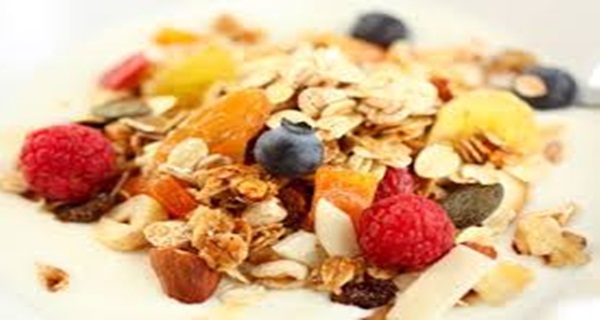A choice of food that contributes to the health of the heart and blood vessels , stress reduction, good sleep, more exercising and active lifestyle are a significant factor for reducing the risk of heart disease.
Here is what we can do trough good diet:
These six groceries should be included in your diet, if you want to actively contribute to your heart’s well-being.
Oatmeal: Oat is an excellent source of soluble plant fibers and contains beta-glucan which can reduce cholesterol and can contribute to the stabilization of blood sugar levels. Oatmeal for breakfast will help you maintain a healthy body weight, and can provide good saturation since it contains a combination of protein and herbal fibers in a balanced proportion.
Chickpea: chickpea is legume that contains proteins, vegetable fibers and various vitamins and minerals, including Group B (folates) and iron. It can reduce the blood cholesterol level and is very healthful for the heart. You can make a variety of delicious dishes from it, even salads with cooked chickpea.
Tomato: tomato contains minerals and vitamins that are good for the heart, such as potassium, vitamin C and lycopene antioxidant. It contains very small amount of sugar and sodium, but a lot of fiber. It is good fresh, but also baked, boiled or in the form of homemade ketchup.
Flax and chia seeds: A good source of omega-3 fatty acid, for which has been shown to reduce inflammation, to lower the level of triglycerides and to reduce the risk of creation of deposits in the arteries. How to use it? You can dip a spoon of flax or chia seed into water, and allow it to rest for a few hours until it swells. Then simply swallow it. If prepared in this way, the flax or chia seeds improve the health of the mucous membrane in the stomach, the maintenance of intestinal peristalsis and the cleaning of waste from the guts.
Cauliflower: Especially good for losing weight (which affects the heart). You can use the following trick: make cauliflower mash instead of potato mash. It has abundance of Vegetable fiber, vitamin C, vitamin K, folates and potassium (regulates heart). It has very few calories, so don’t mind how much you eat (it can cause bloating though).
Almonds: almonds contain proteins, vitamin E (antioxidant), and fats that are good for the heart. They are also rich in calcium and magnesium, which can help in lowering the blood pressure. They’re better raw than baked- if you bake them, do it briefly. They are a great snack and a good supplement to your morning oatmeal. The recommended daily quantity is about 30 grams (approximately 23 almonds).
Olive oil: olive oil is a friend of the heart. It is rich in healthy monounsaturated fats, vitamin E and a number of polyphenols that act as antioxidants and protect the heart and blood vessels. A good dosage is one or two tablespoons per day. Olive oil is good for frying, but you need to make sure that the temperature never exceeds 176 oC, at which point it becomes unhealthy.
And for dessert: a cube of dark chocolate now and then (min 70% cacao). This (plus honey) is probably the most heart-friendly sweet there is.


